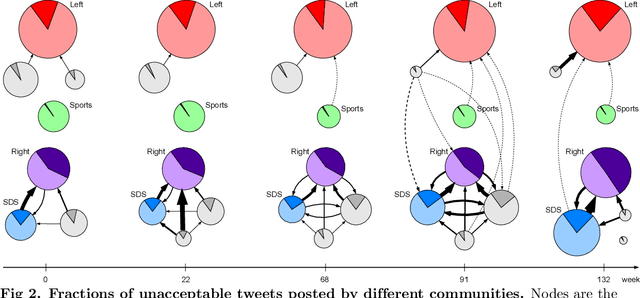Andraz Pelicon
Ensembling Transformers for Cross-domain Automatic Term Extraction
Dec 12, 2022Abstract:Automatic term extraction plays an essential role in domain language understanding and several natural language processing downstream tasks. In this paper, we propose a comparative study on the predictive power of Transformers-based pretrained language models toward term extraction in a multi-language cross-domain setting. Besides evaluating the ability of monolingual models to extract single- and multi-word terms, we also experiment with ensembles of mono- and multilingual models by conducting the intersection or union on the term output sets of different language models. Our experiments have been conducted on the ACTER corpus covering four specialized domains (Corruption, Wind energy, Equitation, and Heart failure) and three languages (English, French, and Dutch), and on the RSDO5 Slovenian corpus covering four additional domains (Biomechanics, Chemistry, Veterinary, and Linguistics). The results show that the strategy of employing monolingual models outperforms the state-of-the-art approaches from the related work leveraging multilingual models, regarding all the languages except Dutch and French if the term extraction task excludes the extraction of named entity terms. Furthermore, by combining the outputs of the two best performing models, we achieve significant improvements.
* 11 pages including references, 3 figures, 2 tables
Retweet communities reveal the main sources of hate speech
May 31, 2021



Abstract:We address a challenging problem of identifying main sources of hate speech on Twitter. On one hand, we carefully annotate a large set of tweets for hate speech, and deploy advanced deep learning to produce high quality hate speech classification models. On the other hand, we create retweet networks, detect communities and monitor their evolution through time. This combined approach is applied to three years of Slovenian Twitter data. We report a number of interesting results. Hate speech is dominated by offensive tweets, related to political and ideological issues. The share of unacceptable tweets is moderately increasing with time, from the initial 20% to 30% by the end of 2020. Unacceptable tweets are retweeted significantly more often than acceptable tweets. About 60% of unacceptable tweets are produced by a single right-wing community of only moderate size. Institutional Twitter accounts and media accounts post significantly less unacceptable tweets than individual accounts. However, the main sources of unacceptable tweets are anonymous accounts, and accounts that were suspended or closed during the last three years.
 Add to Chrome
Add to Chrome Add to Firefox
Add to Firefox Add to Edge
Add to Edge